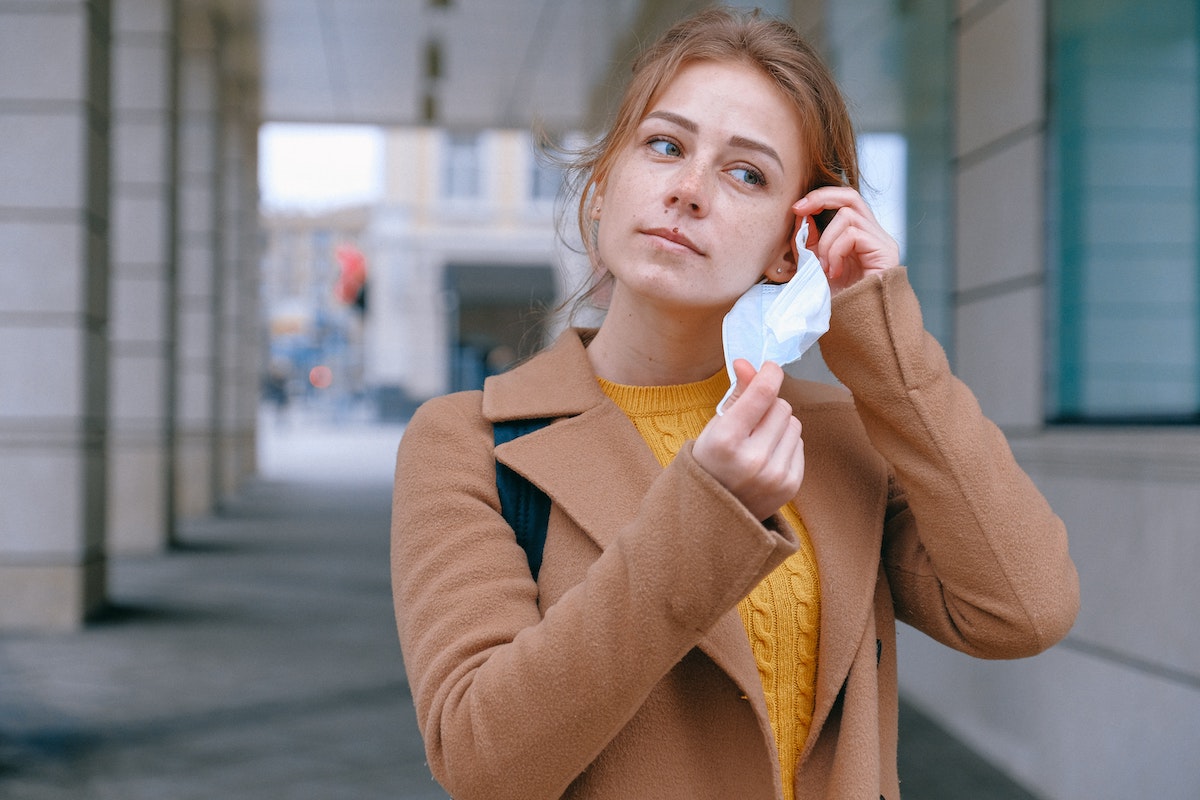At Centre Clauderer, we receive a lot of people who note a significant hair loss after contracting COVID 19 and then recovering from it. These people are worried about a visible reduction in their hair mass, and this is a perfectly legitimate concern!
As we shall see, this abnormal hair loss is not as surprising as it seems. And it's usually temporary.
How does the coronavirus cause hair loss?
To date, no direct link has been scientifically established between COVID 19 and hair loss in patients who have contracted the virus. It would therefore not be the virus which would directly cause this abnormal fall but the associated symptoms to COVID.
Sudden hair loss is very common after a high fever. But high fevers are a frequent symptom of COVID infection. Hair loss can occur very quickly after healing, but more often than not 3 to 4 months later. This abnormal hair loss is called "telogen effluvium". Telogen effluvium occurs when a large number of hairs simultaneously enter the telogen phase (hair loss). It is therefore a fairly common phenomenon following a high fever, linked to COVID or another illness. In this sense, unusual massive hair loss is not surprising in people who have recovered from COVID.
Another likely cause of post-COVID hair loss: stress associated with this virus. Exceptional health measures have been put in place to combat the COVID 19 pandemic, including confinement, barrier measures and travel restrictions. Obviously, these measures led most of us to experience moments of intense stress: no more social life, a ban on visiting our elders in nursing homes, children confined to their homes and deprived of their usual activities, etc. These intense stresses alone can also explain the exceptional hair loss after the pandemic, even among those of us who did not contract the virus. Of course, finding that our hair is falling out in whole handfuls only adds to this stress.
What are the signs of hair loss due to COVID?
There is no no distinctive sign hair loss linked specifically and directly to COVID. This takes the form of telogen effluvium, a side-effect frequently seen after intense stress, high fever, childbirth or taking certain medications. Unlike other forms of hair loss (such as androgenetic hair loss), telogen effluvium (often referred to as "diffuse alopecia") affects the entire scalp, even areas considered to be the most resistant, such as the back of the head.
Often very abundant, this diffuse hair loss obviously causes a great deal of stress and can therefore feed on itself.
Does hair grow back after COVID?
As is generally the case with diffuse alopecia, the hair loss caused by COVID generally lasts only a few months (6 months maximum) and stops as quickly as it appeared. The hair stops falling out in clumps and starts to grow back normally.
However, there are three warning signs which should prompt us to seek advice without delay.
- The first warning sign : this hair loss becomes established over time. This is a sign that the telogen effluvium (diffuse hair loss) caused by COVID may have weakened our hair and revealed other causes, such as androgenetic alopecia.
- The second warning sign is to find among the hair that falls out tiny hairs, 'baby hairs' that normally have many years of life ahead of them. These young hairs are in a full growth phase and are theoretically not affected by a premature transition to the telogen phase (hair loss phase) induced by telogen effluvium in hairs that are close to maturity. Here again, post-COVID hair loss can reveal androgenetic alopecia, which is not a temporary condition!
- The third warning sign: the appearance of scabs, burning or intense itching. Once again, you should seek medical advice without delay. This is a sign that our capillary system has undergone significant stress, resulting in local inflammation. This inflammation tends to feed on itself, in what is known as the pro-inflammatory mechanism. In other words, when inflammation appears in one place, it tends to develop in neighbouring areas. In turn, these new areas affected by inflammation will spread around them, and so on. At Centre Clauderer, we often use the example of mosquito bites to describe this phenomenon: a mosquito bite itches, certainly because it causes micro-inflammation localised at the site of the bite. If you don't touch the small red area around the mosquito bite (the inflammatory zone), it quickly disappears, and with it the itching sensation. On the other hand, if you scratch this small area, the itching will get worse and the small red spot will spread (a little). In short, if you notice these symptoms (scabs, burning, itching) associated with telogen effluvium post COVID, it is also important to consult a specialist. At Centre Clauderer, we have developed treatment strategies based on the application of natural products to quickly put an end to this inflammation of the scalp.
How is COVID-related hair loss treated?
There is no no specific treatment plan post-COVID hair loss. As we have seen, post-COVID hair loss can be massive and very anxiety-provoking for those of us who experience it. It can appear immediately after recovery and up to 3 or 4 months after recovery. This hair loss is not the direct result of COVID, but the consequence of the high fevers that often accompany the episode of COVID infection.
However, this hair loss (called "telogen effluvium" or "diffuse alopecia") stops on its own a few months after appearing. In this case, there's nothing to worry about and your previous capillary mass will soon be back to what it was like before.
If, on the other hand, this massive hair loss persists, or if it also affects young hair (small hairs also known as "regrowth"), you should seek medical advice, as this is a sign that your hair is becoming permanently impoverished. Your hair's life cycle will no doubt have been profoundly disrupted by this post-COVID hair loss, and it needs to be restored to normal as soon as possible. Restore the life cycle of your hair in normal operation means: "ensuring that each hair that falls out is naturally replaced by a new hair of at least equal strength to the one it replaces". Trust Centre Clauderer, we know how to restore this function quickly and sustainably by using natural products with no addictive side effects.

